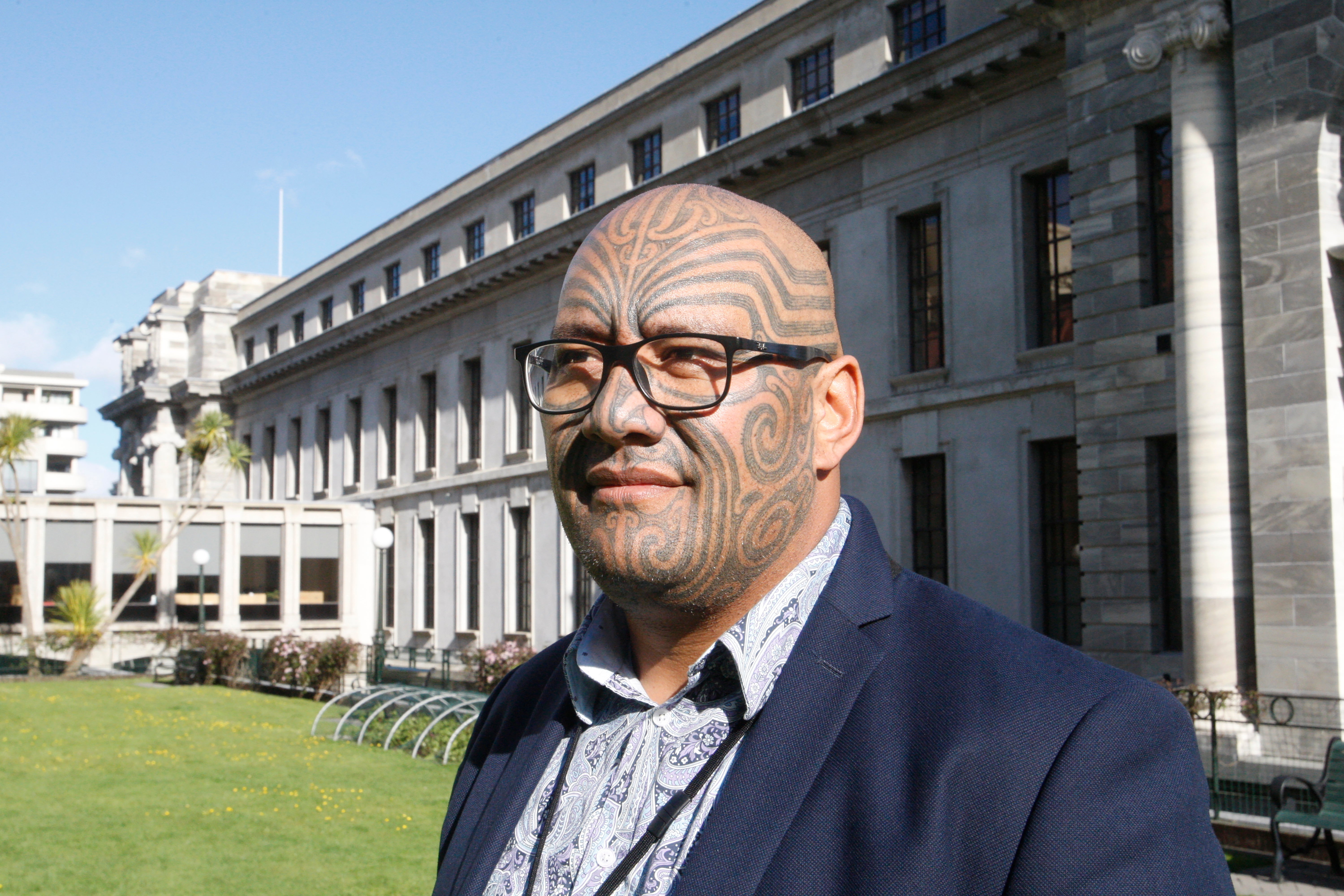Indigenous New Zealand lawmaker wins battle against ties
An Indigenous lawmaker has won his battle against wearing a tie in New Zealand Parliament, ending a longstanding dress requirement that he describes as a colonial noose

Your support helps us to tell the story
From reproductive rights to climate change to Big Tech, The Independent is on the ground when the story is developing. Whether it's investigating the financials of Elon Musk's pro-Trump PAC or producing our latest documentary, 'The A Word', which shines a light on the American women fighting for reproductive rights, we know how important it is to parse out the facts from the messaging.
At such a critical moment in US history, we need reporters on the ground. Your donation allows us to keep sending journalists to speak to both sides of the story.
The Independent is trusted by Americans across the entire political spectrum. And unlike many other quality news outlets, we choose not to lock Americans out of our reporting and analysis with paywalls. We believe quality journalism should be available to everyone, paid for by those who can afford it.
Your support makes all the difference.An Indigenous lawmaker has won his battle against wearing a tie in New Zealand Parliament, ending a longstanding dress requirement that he describes as a “colonial noose ”
Rawiri Waititi, the co-leader of Maori Party, this week sparred over the dress code with Parliament Speaker Trevor Mallard, who has the job of enforcing the rules — even though Mallard said he didn't personally agree with the necktie rule.
Mallard had previously warned Waititi that he needed to wear a tie and then on Tuesday kicked him from the debating chamber after Waititi showed up wearing a traditional pendant around his neck called a hei tiki.
“I do not recognize the member, he will now leave the chamber,” Mallard told Waititi, who responded by saying the issue wasn't about ties but about culture.
“This is a breach of the rights of Indigenous peoples,” Waititi told reporters afterward. “We have the right to practice our cultural identity.”
But by the following evening, Mallard had changed course. It happened after a committee meeting during which lawmakers heard from Maori.
“The majority of the committee was in favor of removing the requirement for ties to form part of ‘appropriate business attire’ for males,” the speaker wrote in his explanation, adding that ties would no longer be required.
Waititi hailed the change as a win for Maori and Indigenous people around the world. And with the rules loosened, several other male lawmakers followed his lead by not wearing ties on Thursday.
Waititi, a father of five, surprised many people when he won a seat during last October's election and arrived in Parliament with a jovial but also uncompromising attitude, promising to fearlessly promote the rights of Maori.
“Mr. Speaker, Maori have had enough of being assimilated and forced to do and look like everyone else,” Waititi told lawmakers during his opening speech in December. “We are not like everyone else. We are unique. Being Maori is like having super powers. There is no-one else in the world like us, and we need to maintain who we are.”
During his maiden speech, Waititi told the story of a tribal member who had been wrongfully hung to death for a crime he didn't commit due to mistaken identity. Waititi then took off his own red necktie as he repeated what he said were the man's last words: “Take the noose from around my neck, so that I may sing my song.”